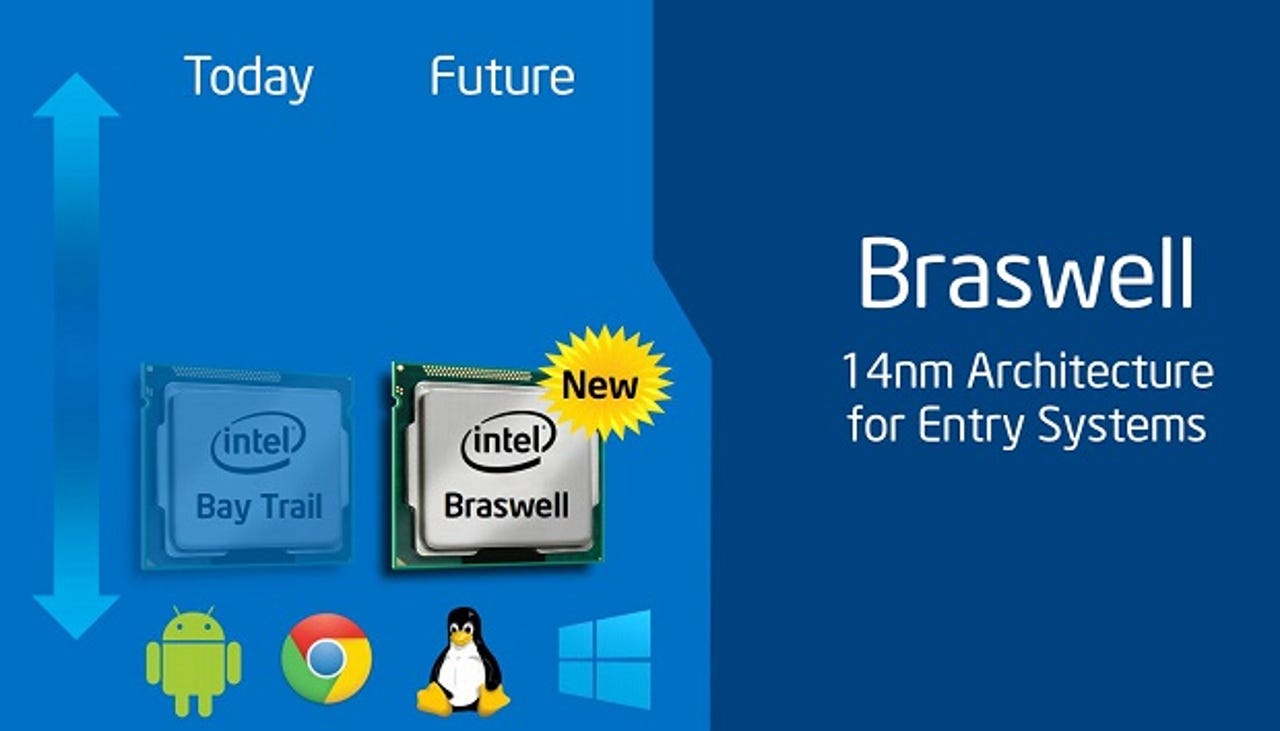Intel's Braswell chip to replace Bay Trail for cheap PCs, Chromebooks


Among the various news items emanating from the Intel Developer Forum in Shenzhen, China this week comes the company's latest system-on-a-chip (SoC) being developed for entry-level computing devices. Dubbed Braswell, it will replace Bay Trail, though that platform still has life in it (more below on that).
Tech Pro Research
While Bay Trail is built on the 22nm manufacturing process, Braswell, like its more powerful Broadwell sibling, will have a 14nm architecture. As is usually the case with such shrinkage, you can expect better power efficiency and a performance boost from Braswell, which will power budget desktops and laptops. It will also make use of the company's improved Iris graphics technology.
The latter category will include Chromebooks, a growing segment of the notebook market running Google's Chrome OS and usually priced under $400. Intel claims it will boost the number of Chromebook designs using its chips to 20 in 2014, up from just four in 2013. It's unclear, however, if those new designs will feature Braswell, as the company did not close an official timeline for the new platform's release.
If the new Chromebooks rely on Bay Trail, then they might pack an updated version of those chips, which Intel promises will have a steep reduction in the number of components required to produce them. That will lead to cheaper quad-core 64-bit Bay Trail processors that will be ready to ship in Android and Windows-based devices as soon as this summer. Some of these tablets might cost as little as $99, a goal Intel has long touted but yet to deliver on.